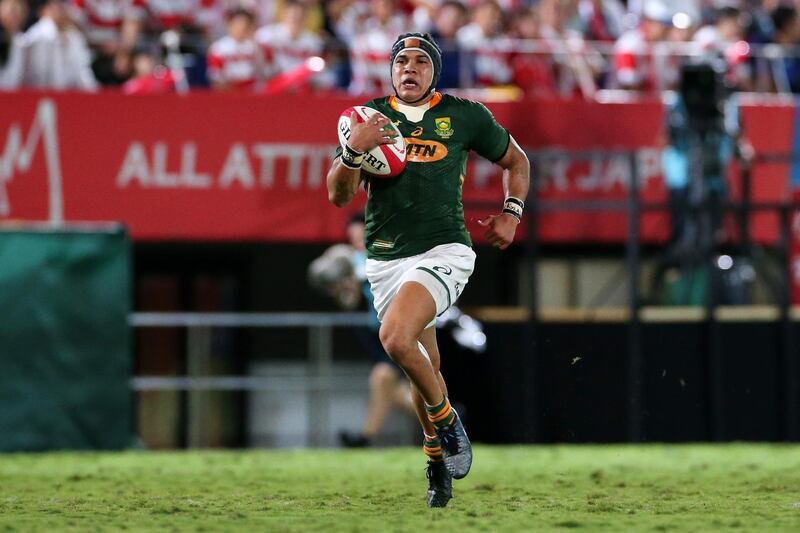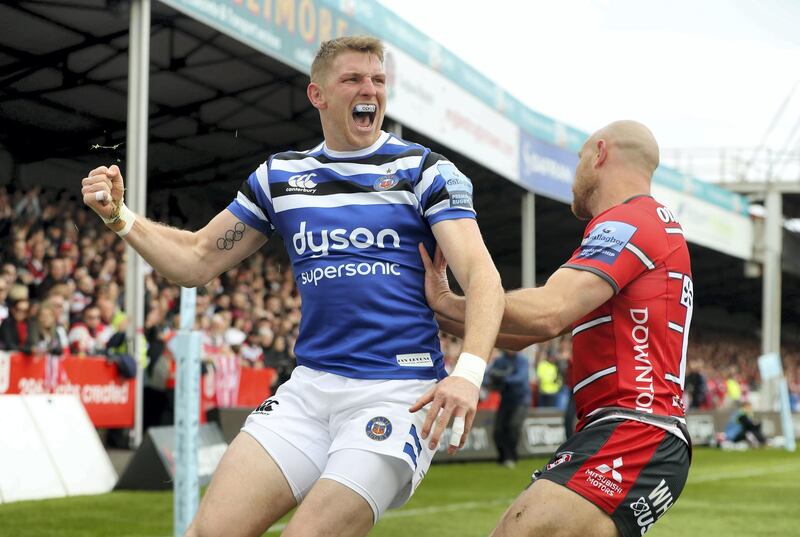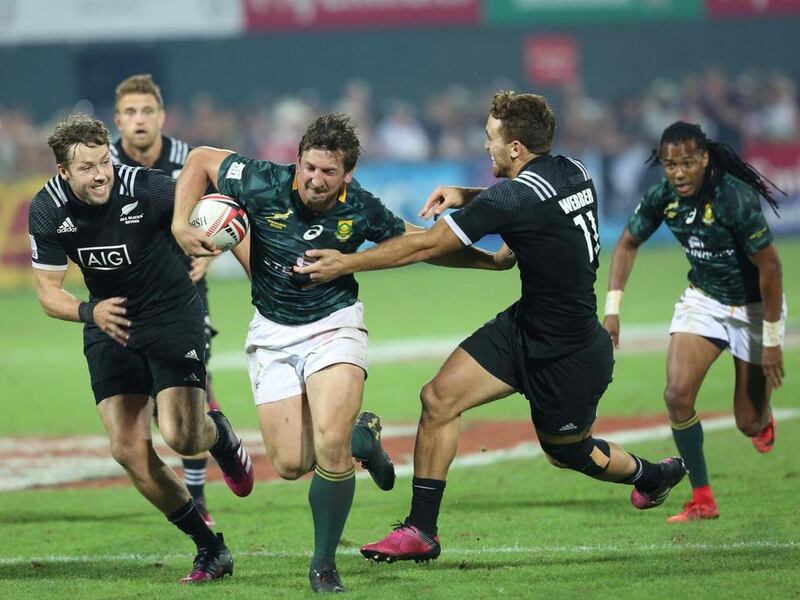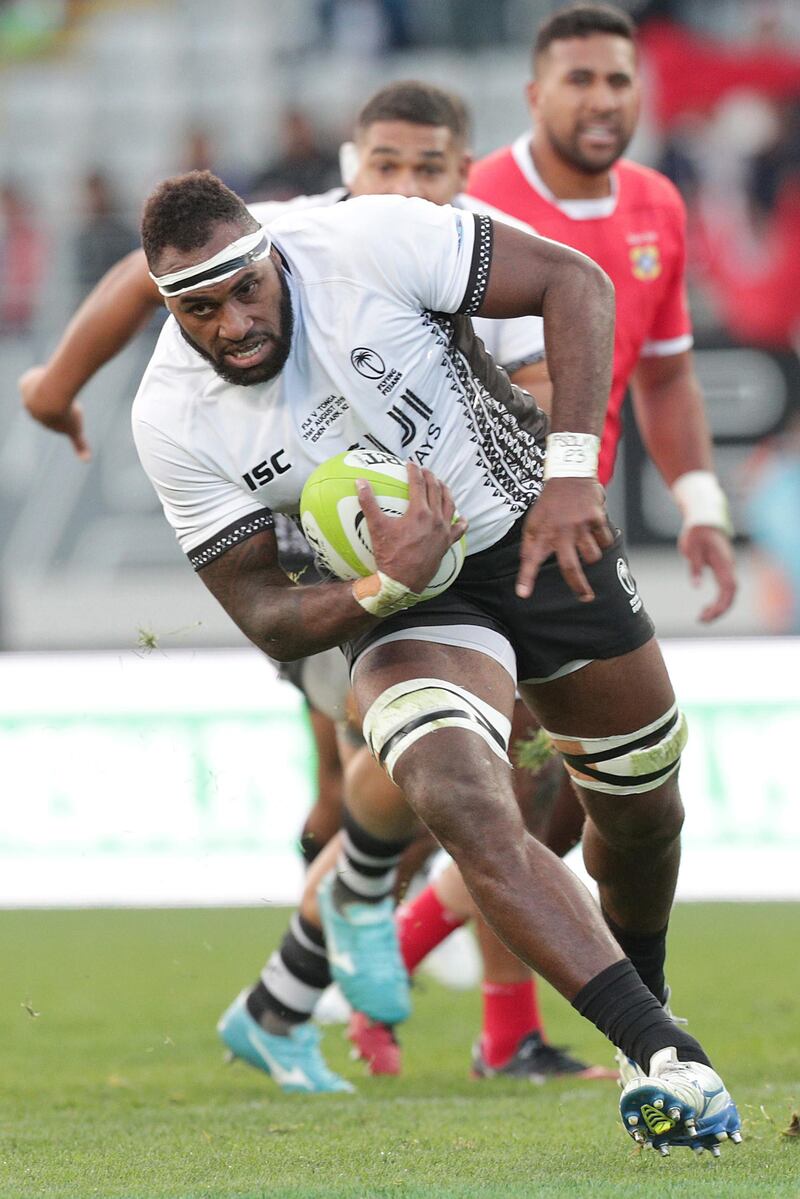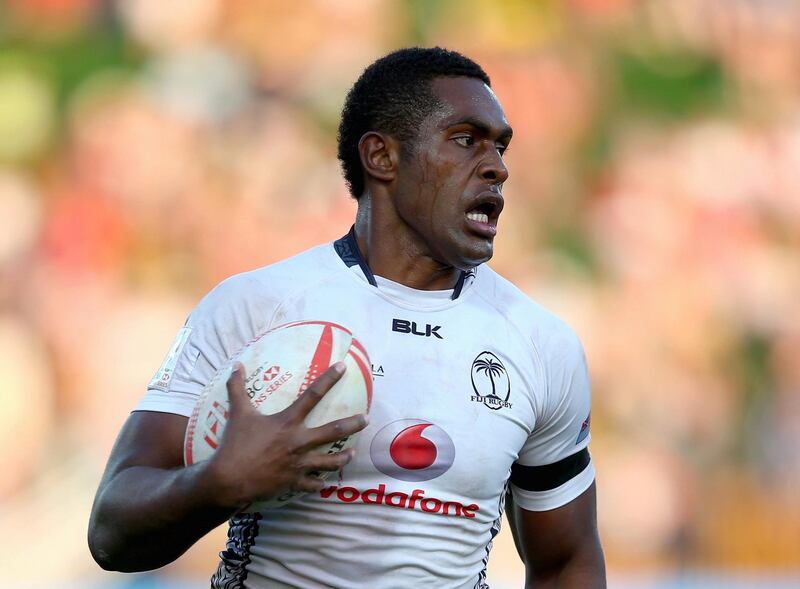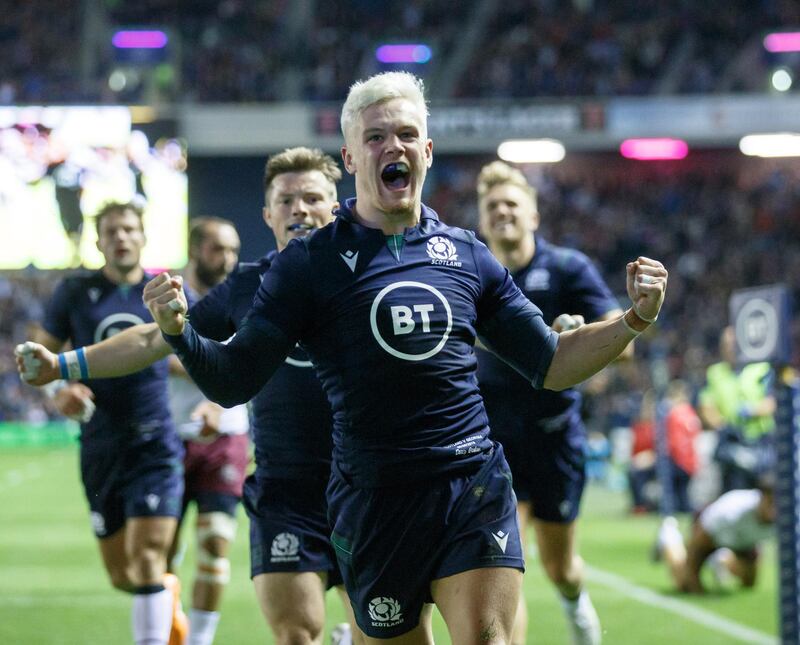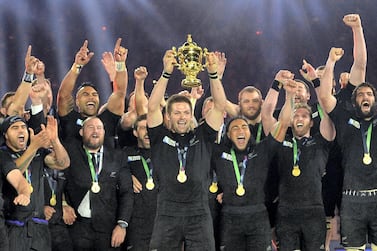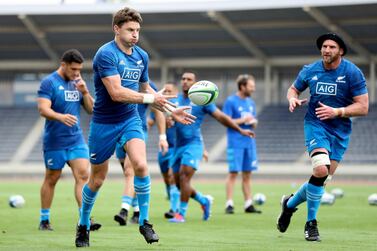There was a time when the World Sevens Series was seen as a nursery for the 15-a-side game. Players of promise were given their chance there first, with a longer-term view of progressing to the Test match rugby.
Increased professionalism in the abridged format, hastened by the acceptance of sevens into the Olympic movement, means the process has slowed in recent times. Sevens, far more so than it was a decade ago, is now seen as an end in itself.
There are still some who bridge the gap, though. A number of those playing in the Rugby World Cup in Japan have been spotted on the main field at The Sevens, Dubai in recent years.
Some might even be about to etch their names in World Cup lore, like sevens converts such as Jonah Lomu, Joe Rocokoco, and Bryan Habana did before them.
Cheslin Kolbe (South Africa)
When Kolbe was training on the school playing fields of Dubai ahead of the 2013 sevens, as an unknown wing barely out of his teens, the idea of ever representing the full Springboks was a long way off.
He was, after all, just 1.70 metres and not even 80kgs. Not exactly the physical profile of the average South Africa Test player.
His gifts were more obviously suited to rugby’s abridged format. And he tore it up on the sevens circuit, too, both on the World Series and as an Olympian.
A move to Toulouse to play XVs rugby then put in train a sequence of events that saw him called up to Rassie Erasmus’ Boks squad for the 2017 Rugby Championship.
It could not have gone much better. In his second Test, he scored a thrilling intercept try as South Africa beat New Zealand in Wellington.
Ruaridh McConnachie (England)
Selected as a bolter by Eddie Jones for England on the strength of one season of 15-a-side rugby for Bath. That said, he is not entirely green when it comes to international rugby, having first caught the eye in sevens.
The 27-year-old wing, who only made his Test debut in England’s final World Cup warm up match against Italy last week, won a silver medal with Great Britain at the Rio Olympics in 2016.
Other than that, his finest moment in an England sevens shirt arguably came in Dubai in 2016, when his try settled a remarkable quarter-final win over Scotland, way after the buzzer had sounded.
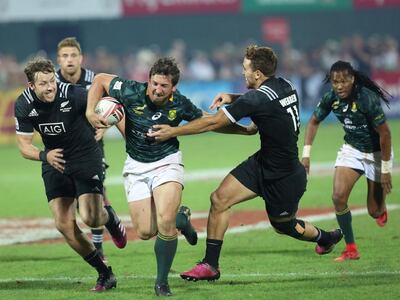
Kwagga Smith (South Africa)
The stand-out player as South Africa have dominated Dubai in recent years. The Blitz Boks have won the Emirates International Trophy three times since 2014, fuelled by their indefatigable forward Smith.
After bulldozing his way through the 2017 title-win at The Sevens, Smith set out his goals for the future.
“I will do my best to get in the Springbok team for the 2019 World Cup in Japan,” said Smith, whose first name is actually a nickname given to him by his brother, and relates to a type of zebra found in South Africa.
“Then, after that we can look at the Olympics, if I am blessed to play so long.”
The first part of that mission has been accomplished, after he made the Springboks' squad for this tournament. Next up could be a return trip to Tokyo for next year's Olympics.
Semi Kunatani (Fiji)
The Harlequins flanker was raised by five surrogate mothers in a small village in Fiji’s interior, after his mother died when he was a young boy.
He won the Dubai title with Fiji in 2014. He returned a year later, when they finished third, before missing the following year – having by that point earned a lucrative move to French club Toulouse by way of his excellence on the sevens circuit.
Although he played just two tournaments in the 2015/16 sevens season, it was written in to his Toulouse contract that he be released as and when Fiji really needed him for Olympic planning.
He ended up as one of the pioneering gold medal winners in Rio. Ben Ryan, the coach of that team, termed him “our LeBron James” because of his all-round skills and influence.
Viliame Mata (Fiji)
Such was the outpouring of joy when Fiji won that Olympic gold in 2016, nobody wanted to miss out on the homecoming.
Mata’s own father flew home from his job on a security contract in Iraq especially to be part of the island-wide welcoming committee.
“Big Bill”, as the back-row forward is affectionately known, earned a professional deal to play for Edinburgh in Scotland on the back of his Olympic exploits.
Mata could potentially partner his fellow gold medallist Kunatani in Fiji’s back row in Japan, having been named in the squad by John McKee.
Darcy Graham (Scotland)
At 1.75 metres, the 22-year-old wing is relatively diminutive by modern rugby standards. What he lacks in size, though, he more than makes up for in speed and agility.
In 2017, he topped the try-scoring charts in Dubai, alongside England sevens great Dan Norton and the Ugandan flier Solomon Okia, when he scored eight tries.
The most memorable of them, a solo effort from inside his own 22 in the cup quarter-final against Fiji, ended with him being dumped over an advertising cushion.
The highlight of his budding XVs career so far came when he scored two tries against England in this year’s Six Nations, as part of Scotland’s extraordinary comeback from 31-0 down to draw 38-38.
